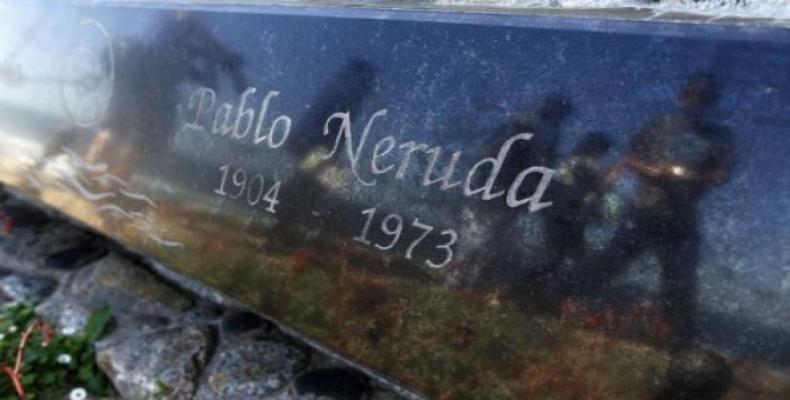Santiago de Chile, November 6 (teleSUR)-- Chile's government admitted for the first time on Thursday the famed poet Pablo Neruda may have been assassinated.
It's “clearly possible and highly likely that a third party” was responsible for Neruda's death in 1973, according to a statement from Chile's interior ministry obtained by El Pais newspaper. The statement seemed to be circulating within the ministry as far back as March, but was unknown to the public until now. The newspaper reported the statement was the product of an extensive investigation into the poet's death.
The interior ministry has responded to El Pais report by acknowledging the authenticity of the statement obtained by the newspaper, but emphasized the document was part of an ongoing investigation. According to the ministry, an investigative panel is yet to draw a final answer on the controversial death.
Chile reopened its investigation into Neruda's death earlier this year, after years of speculation he may have been killed for political reasons.
The poet's remains were exhumed in 2013 over the same allegations, however tests produce no evidence. Neruda died in 1973, just weeks after a military coup ousted President Salvador Allende, whom he had supported.
Neruda's death circumstances led to doubts that he had been a victim of cancer, and instead had been a victim of Augusto Pinochet's dictatorship. Authorities said the new forensic test will look for inorganic or heavy metals in the poet’s remains to try to determine a direct or indirect cause of death.
Neruda remains Chile’s best-known poet. He achieved critical acclaim with the publication in 1924 of a Song of Despair at the age of 19 and Twenty Love Poems and won the Nobel Prize in Literature in 1971 “for a poetry that with the action of an elemental force brings alive a continent’s destiny and dreams.” During his lifetime, Neruda held many diplomatic positions and was a senator for the Chilean Communist Party. When President Gonzalez Videla outlawed communism in Chile in 1948, a warrant was issued for Neruda's arrest, seeing him hide for months in the basement of a house.


